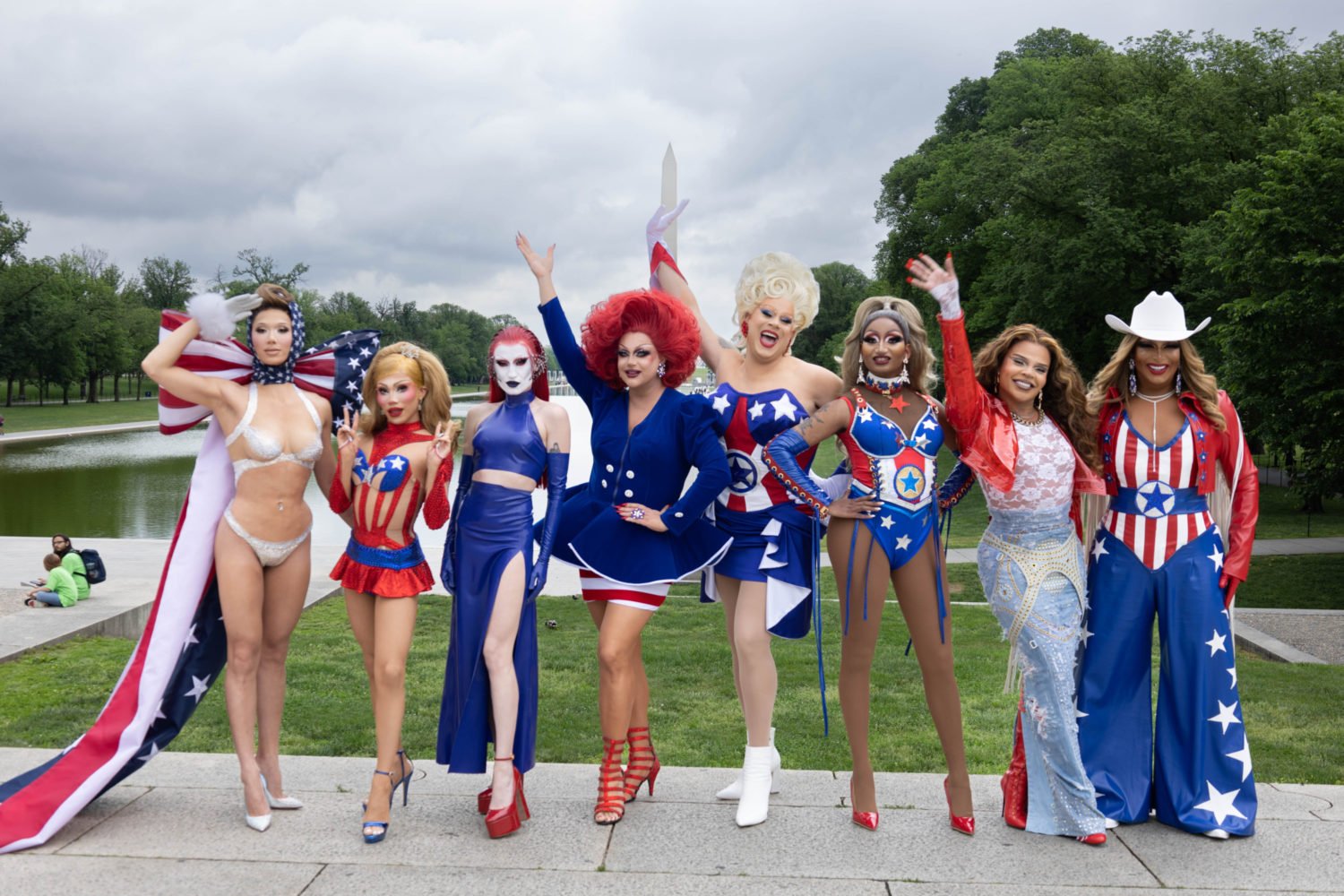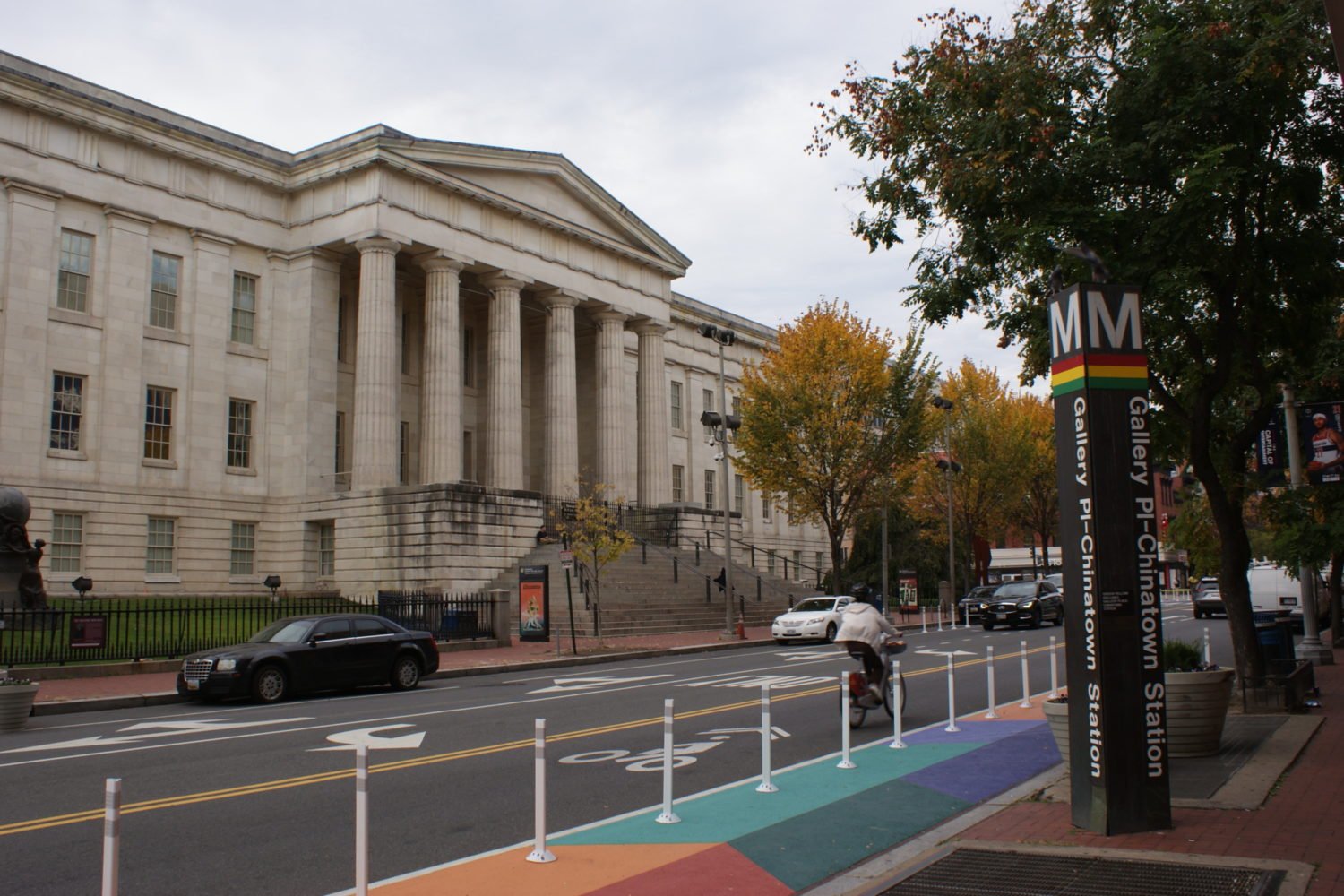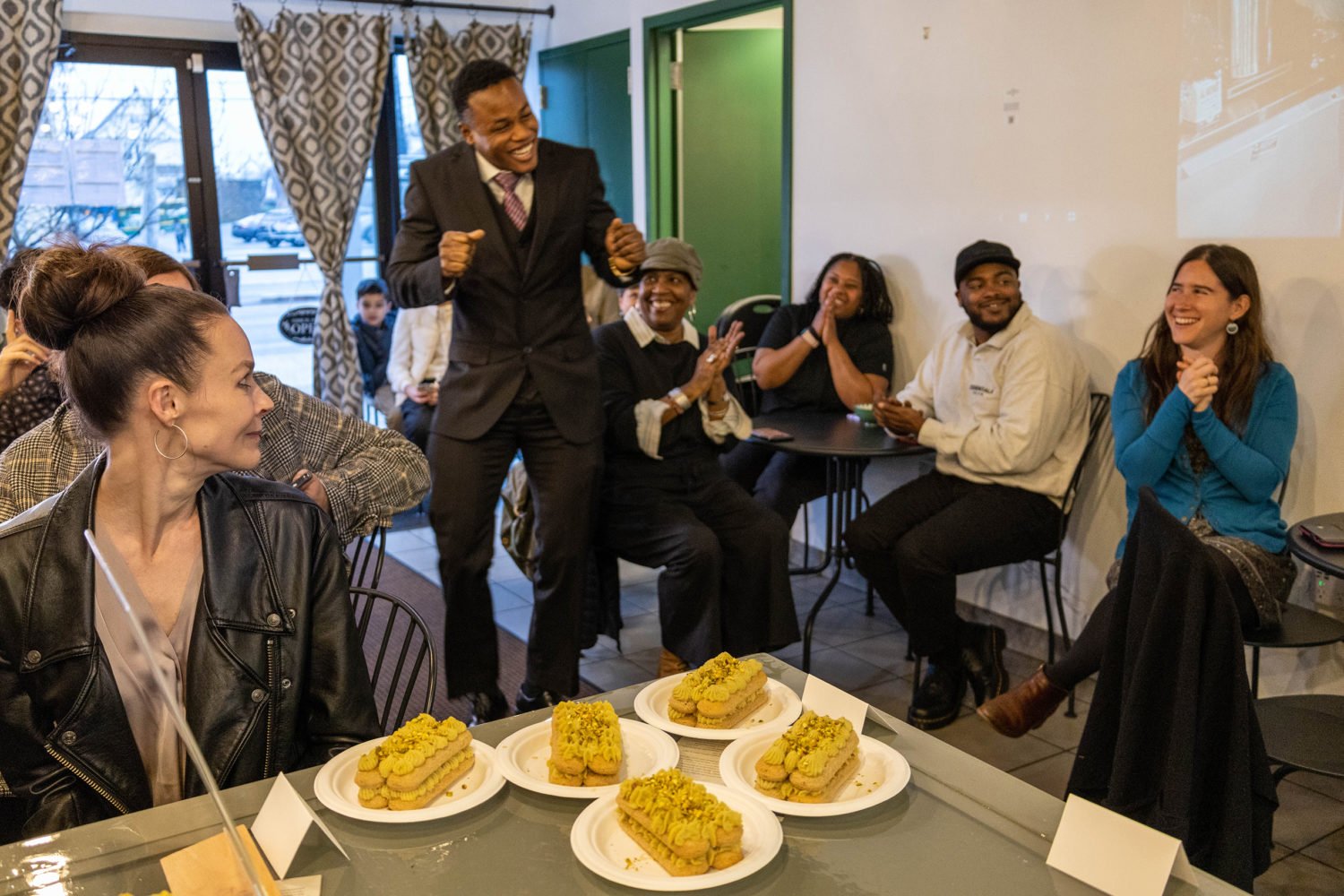At last the long winter had ended. it was time for Nancy Alberts to get her children some shoes.
"The blacksmith is coming at 1:30," she says from the tack room in her section of Barn 18 at Laurel Park. Unlike most businesswomen who grossed nearly a million dollars last year, Alberts has an office little bigger than a closet. A refrigerator takes up most of it; guests are seated in a director's chair that Alberts wipes and covers with a cloth. Cats are everywhere, along with brushes and bridles and other equipment for taking care of horses.
At 57, she is a perpetual-motion machine. every morning at 4 she drives her red GMC Sierra pickup from her Jessup home to Laurel to begin mucking out the stalls and brushing and bathing the racehorses in her care. Eventually she will saddle them and take them out for a gallop over the Laurel oval a quarter-mile away. Then it's off to the racing secretary's office to make sure they are entered in the right races.
She's a one-woman show–no partners, no employees. "Partnerships are sinking ships," she says. She has nothing against employees–it's just that she like things done her way.
When Ed Bourne, the blacksmith, shows up, Alberts pushes open the door to stall 52. The stalls in this corner of the Laurel complex are weathered. The yellow paint is peeling. The roof appears barely to have survived the winter's snows.
The horse Alberts pulls out into the muddy passageway in front of the stalls wears a plaid blanket. On its bridle is a metal tag with its name: MAGIC WEISNER.
Alberts holds the bridle as Bourne begins setting up to take off the horse's old shoes. Magic, a bay with long legs and a sleek upper torso, is calm, almost sweet. His eyes are brownish-gray and large.
As the blacksmith works, Magic's brother and a half sister look on.
"You're my best boy," Alberts whispers to Magic. He takes the compliment quietly, but it sends his older brother, a colt named Deliver Hope, into a Mister Ed-like spasm of head-shaking. It must not be easy to be the older brother of a horse that came within a length of beating the Kentucky Derby champion War Emblem, that won the Ohio Derby, for whom million-dollar purchase offers came almost daily, but that finished the year near death, his brilliant career nearly ended by a mosquito bite.
Nancy Alberts is the matriarch of this three-horse clan. They–and a fourth horse, Diamond David, a two-year-old who recently joined them–are sons and daughters of a mare once thought so woeful that Alberts was able to buy her for a dollar.
The story of Magic Weisner began on the first Saturday in May 1976, when a colt from Puerto Rico named Bold Forbes arrived in Louisville, Kentucky, to challenge Honest Pleasure, one of the mightiest young horses America had ever produced.
Bold Forbes shot to the lead that Kentucky Derby day and held it to the end. The shocking upset guaranteed Bold Forbes his reward–a lifetime of frolicking in the Kentucky bluegrass with the finest fillies.
But he was never able to replicate his on-track success in the breeding shed. Thirteen years after his surprise win in the Derby, Bold Forbes was long past being sought after by the owners of fancy mares. He was reduced to servicing the likes of an Irish-bred mare named Glidden who had eked out $46,000 in earnings over her career and had no family tree to speak of.
No one was surprised when the result of the breeding of Glidden to Bold Forbes in 1989 was an awkward, bowlegged filly who came to be named Jazema. She was owned by Ahmed Foustok, a British-based millionaire who kept some of his younger and less promising horses in Maryland with trainer James Simpson.
Maryland isn't a premier venue for American racing, and Jazema didn't seem likely to make much of an impact even there. So poor were her chances that Foustok turned her over to Simpson's groom-turned-trainer, Nancy Alberts.
Alberts had loved horses as long as she could remember. She had been born in West Chester, Pennsylvania. Her father, William Hickman, ran a cesspool-cleaning business but also owned a couple of horses and liked to ride them. He fostered his daughter's interest in horses and sent her to a summer camp that specialized in riding.
When she was 15, she heard about a broken-down horse named Benediction that was headed for the dog-food factory. To save the horse's life, she persuaded her father to buy him for $600. She began working with Benediction, and before long she thought he might have a decent chance running in long, "point-to-point" races.
On a trip to Delaware Park in Wilmington, Nancy had persuaded trainer Simpson to give her a job as a groom and exercise rider. In the late 1960s, Simpson moved most of his racing operation to Maryland, and Nancy came with him. Shortly thereafter, she met a jockey named Barry Alberts. They were married in 1969, had a son named William in 1972, and divorced a few years later.
In 1976 Simpson put Nancy Alberts in charge of a two-year-old colt named Cormorant, who quickly earned a reputation as the fastest horse in Maryland. When Kentucky Derby winner Seattle Slew came to Maryland for the Preakness in May 1977, Cormorant was seen as the only horse standing between Slew and the Triple Crown.
It was Alberts who got Cormorant ready for the race. Breaking from the inside post position in the Preakness, Cormorant led Seattle Slew for half the race before tiring and finishing fourth.
Alberts got her trainer's license and occasionally would train and run her own horses. But they were usually castoffs, and they never provided enough winnings to let her give up her day job mucking stables and grooming horses for others.
When Simpson proposed that Alberts buy Jazema from Foustok for $1, some wondered if the price wasn't too high. Not Alberts. Falling in love with unappreciated thoroughbreds was what she did best. So she took the bowlegged filly, nurtured her, and began entering her in "claiming races," in which rival owners can buy the horse for the designated "claiming" price.
At that level of racing, awards aren't handed out to trainers, but people who saw Alberts' work with Jazema appreciated her patience and success. Jazema had trouble walking–watching her run was like watching an egg-beater. "But on the track," Alberts says, "she was all heart."
In a 58-race career, Jazema won 14 times and finished second 11 times, winning a total of $88,000.
Early in her career, jazema once had been stabled next to a horse named Ameri Valay, a grandson of the great Northern Dancer. Alberts sensed that Jazema was attracted to Ameri Valay. "Every time they were near each other they made google eyes," she says. She thought that when Jazema's racing days were over, the two horses might make music together. "Plus, Ameri Valay was a racehorse," says Alberts. "I used to watch him gallop. He was something."
By 1998 Ameri Valay was standing at stud in Maryland for $2,500. Alberts had not forgotten her hunch. The first result of their meeting was Deliver Hope.
Alberts bred Jazema to Ameri Valay again the following spring. On May 3, 1999, Jazema dropped a colt. He had a little star on his face similar to one that had graced the forehead of Bold Forbes.
The foal was born at Shamrock Farms in Woodbine, Maryland. Before he was weaned, he developed an infection in his ankle. Alberts piled mother and son into a van and drove them to a clinic in Pennsylvania operated by veterinarian Allen Wisner. Wisner flushed out the infection with fluids and sent mother, son, and owner home. As Alberts loaded her crew into the van, Wisner sounded a note of caution.
"I think the ankle is going to be fine," he said. "But I don't know if he'll ever make a racehorse."
Alberts was accustomed to such comments about her animals. She had heard them since the day she led Benediction from his van into a friend's barn. Alberts nodded. "We'll see," she said.
Back in Maryland, the colt recovered and Alberts decided to show her appreciation by naming him for the vet whose treatment had worked "like magic." But she misspelled the name Wisner–the horse was registered as Magic Weisner. By late 1999, he was romping around a friend's farm.
From the start, Magic had a sweet disposition. When youngsters tried to pet him through a fence, he nibbled at their hair. He was "all legs," Alberts says, with a back end so big that "he always looked like he was going downhill.
"He didn't have any speed at all. But he was better than his older brother."
By August 2001, Magic was ready to try a race. The crowd didn't think much of his chances at six furlongs (three-quarters of a mile): The bettors made him 45-1. Alberts didn't expect him to show much; in workouts he had always been a slow starter.
Sure enough, Magic broke slowly and wasn't really in the race early on. But in the stretch he began showing interest–and passing horses–to finish fourth.
Magic's second race was scheduled for September 15, 2001. But four days earlier American Airlines Flight 77 from Dulles Airport hit the Pentagon. Nancy's son William was working as a computer specialist at the Pentagon.
As the hours of uncertainty passed, Alberts huddled with her two horses. Finally William was able to get a call through. Colleagues working a few offices away had been burned to death, but he was safe.
Four days later, as President Bush called on the country to return to normal life after the period of national mourning, racing resumed at Pimlico. Alberts went ahead with her plans to run Magic in the ninth race. It was another six-furlong race, and again Magic broke too slowly to get into it. But when jockey Alberto Delgado jumped off the horse, he told Alberts, "Boy, he sure did finish!"
What Magic lacked in speed, he made up in stamina.
Jazema had been a sprinter, but Alberts was beginning to realize that Magic needed more ground. So in October she entered him in a two-turn race at a mile and a sixteenth. He cruised home a winner by nearly nine lengths. It was the kind of performance that makes a trainer tingle.
The next month Magic ran against so-called "allowance" horses–the good ones not available for claim. He placed second but again seemed eager to run.
In December Magic beat the allowance horses, then on the last day of the year at Laurel Park he won the Maryland Juvenile Championship–a $100,000 race. It was Alberts' first victory in what racing people call a "hundred-grander."
Magic continued beating maryland horses, and on April 20, 2002, Magic went for his sixth victory in a row–the $107,000 Tesio Stakes at Pimlico. This time two of the best young horses from New York came to town.
Winning the race could launch Magic into consideration for the Kentucky Derby. Before the race, Alberts briefed jockey Phil Teator on what to do–take the horse up near the front and move early.
But communicating with people is not Alberts' strong suit. Teator didn't understand her plan, and he got Magic trapped out wide on the turn and lost ground to a horse ridden by New York jockey Richard Migliore. By the time Teator and Magic got themselves sorted out, Migliore was gone aboard Smoked Em.
Alberts was furious. And she was certain that if "Migalorry," as she called him, had been riding her horse, they would have won.
So Alberts was at home in Maryland on May 4 when War Emblem, a 20-1 longshot, won the Kentucky Derby. In her heart, she believed that Magic was every bit as good as War Emblem, who like Magic had been sired by a Maryland horse, and one not as good as Ameri Valay, in her opinion.
More-objective opinions held otherwise. According to Magic's Beyer Speed Figures, a speed-rating system developed by Washington Post sportswriter Andrew Beyer, Magic was a cut below the top tier of horses that ran in the Tesio. He was probably doomed never to show his stuff outside of his native state.
If the middle leg of the triple crown were run anywhere but Pimlico, Magic never would have gotten the chance to run against the world's best horses.
It would cost Alberts $20,000 to get Magic into the Preakness. But the horse's streak against the locals had put $233,110 into her pocket. And to run Magic in the Preakness, she would not have to leave home, something Alberts had never done with a horse she had trained.
Entering Magic against the best three-year-olds in the country struck many as an exercise in futility. The three-year-olds of 2002 were not an ordinary crop. War Emblem had run a smashing Derby. And D. Wayne Lukas, who had won several Derbies, would be bringing Proud Citizen. Hall of Fame trainer Bobby Frankel planned to bring Medaglia d'Oro, who had run poorly in the Derby but was a terrific horse. Then there was Harlan's Holiday, who had won the Florida Derby and the Blue Grass Stakes.
Alberts ponied up the $20,000 to see what her horse could do against the best.
On May 15, three days before the race, Alberts was nervous. Her biggest problem in life was in front of her: She didn't trust subordinates, and that included jockeys–though maybe it was because she'd been married to one. She would not put Phil Teator back on Magic after the Tesio Stakes. But almost all the best jockeys were committed for the Preakness. She got testy as reporters pestered her about who was going to ride Magic. "I've got until 45 minutes before the race to decide," she told them.
Rival trainers assumed her indecision was a sign that Alberts couldn't handle the pressure of a big race. But one of the people who read her comment was the agent for Richard Migliore, the jockey who had ridden so well to beat Magic in the Tesio Stakes. "The Mig," as he was known to handicappers, didn't have a Preakness mount and wasn't happy about being left out. His agent called Alberts. In a heartbeat, she decided "Migalorry" was her guy.
Shortly before 6 pm on may 18, Migliore swung up onto Magic, and Alberts gave the jockey his final Preakness instructions. The Mig wore red silks with a white horizontal bar. Magic cut a fine figure except for an ankle wrap on his back left ankle.
As expected, War Emblem jumped to the lead, and Migliore held Magic back as the speed horses went flying by. One by one the challengers took their shots at War Emblem and fell back. When they reached the stretch, Migliore had passed enough of them that he began rehearsing the speech he would give to his trainer. "At least we got you some money," Migliore was whispering to himself. It would have been a shame for a nice lady like Ms. Alberts to have lost her $20,000.
As Magic and Mig came down the stretch, Magic was accelerating, and the horses in front of him, including Derby winner War Emblem and runner-up Proud Citizen, seemed to be gasping.
In his head, Migliore started rewriting his speech. Now he was composing the address he might give in the winner's circle.
At the beginning of the race, Alberts had been stuck up in the owners' boxes, high above the track. But between the tall owners and trainers and the big hats of their wives and girlfriends, she couldn't see a thing, so she had raced down the steps to the first-floor grandstand.
By the time she settled in front of a television screen, the race was half over. When she looked up, she saw Magic's white shadow-roll coming up from the rear.
"Go get 'em boy," she yelled to a crowd that had no clue who she was.
The finish was one of the grandest in Preakness history. War Emblem dug in, hoping to become one of the few horses in racing history to win both the Derby and the Preakness. Proud Citizen had run hard but was finished. Then up roared Magic–fourth, then third, then within a length of War Emblem. He made one last desperate effort–and finished second.
Alberts didn't know whether to be happy or sad. Magic had come so close. "I wasn't sure how to feel," she says, "so I did half a jig."
A passel of relatives, including her son, was celebrating. They had all bought exacta tickets pairing Alberts' horse with War Emblem. Since Magic was 45-1, the payoff was big–$327 for every $2 wagered. Some of them even had the trifecta, with Proud Citizen third, which paid $2,311 for a $2 ticket.
"Their pockets weren't big enough to hold it all," says Alberts, who didn't do badly herself. The second-place finish was worth $200,000 to the owner and trainer. With no partners, except for Migliore's 5 percent, it was all hers.
War emblem would go for the Triple Crown at the Belmont Stakes in New York. The press, Alberts' relatives, and her colleagues all urged her to take Magic up and give him another shot at War Emblem.
"I didn't want to," Alberts says. "But everybody kept talking me into it."
It wasn't the travel or the pressure that was holding her back. "I didn't think Magic could run a mile and a half," she says, noting that the Belmont was longer than either the Derby or the Preakness. Still, she admits, "Everybody kept saying, 'We got to go,' so in the end I guess it wasn't all that hard to persuade me."
On a trip to New York for such a big race, most people would be inclined to live it up a little. Alberts went up the day before the race and slept in the barn of an old friend.
Magic acquitted himself respectably in the Belmont, finishing fourth. War Emblem's bid for the Triple Crown was ended by a 70-1 longshot named Sarava.
"I learned a lot from it," says Alberts. For one thing, she should have gone up earlier to allow Magic to get accustomed to the big Belmont grounds. Her stall space had been right next to War Emblem's, where there was a constant media frenzy. Neither she nor Magic had had a chance to relax.
At home in Jessup, calls came in so fast that Alberts couldn't take them all. Many were from horse agents. Ahmed Foustok called nine times, offering more than a million dollars for the horse. He would take Magic to Europe and run him in the longer handicap races there, mostly run on grass tracks that a great-grandson of grass-loving Northern Dancer might enjoy.
"I'm not selling him," Alberts told her old colleague. "I'm having too much fun."
After Belmont, Alberts mapped out a plan that would take Magic through the derbies in Ohio and Pennsylvania. She coaxed her son into driving the van and took Deliver Hope along to keep Magic company.
Everything worked to perfection. Migli-ore flew in to ride, and Magic won first prize of the $300,000 purse.
Next up in early September was the Pennsylvania Derby outside Philadelphia, where Magic, off his Ohio victory, figured to be a favorite. But several weeks before the trip, Alberts noticed that Magic wasn't emptying his feed trough. She called the vet, who said Magic had a fever that probably would clear up in a few days.
"It wasn't no fever," says alberts. The next day she called in another vet. "I was upset. Magic was pathetic. He was too weak to swish his tail–all the nerves back to those muscles had been deadened."
The second doctor said Magic was suffering from a brain inflammation that seemed to be affecting the muscles on his back left flank. He put the horse in a van and shipped him to New Bolton Center in Pennsylvania.
There Magic was found to be one of more than 10,000 horses stricken last year with the West Nile virus. The disease had come into the horse community so quickly that few trainers, Alberts included, had thought to get their animals vaccinated. The previous year, only one horse in Maryland had gotten the illness.
For more than a month, Magic battled the illness in Pennsylvania. Alberts visited him as often as she could and still take care of his brother and half-sister Jamilah. "He's a sick horse," Alberts said sadly.
For years she had struggled to make ends meet. Then she had turned down offers of $1 million for Magic. Now she might have neither the million nor her horse.
But like his mother, Magic was a fighter. Two other Maryland horses thar had contracted West Nile were already dead. By October, Magic was back home in stall 52, next to his brother.
The brain inflammation had stopped the muscle development in his left flank. If you looked at him from the rear, one leg seemed half the size of the other. But Alberts worked with him daily. By March, the difference between right flank and left flank was barely noticeable.
Nearly every morning, alberts still arrives at the stables by 4; twice a week she stays up late to take part in her bowling league. Most days she saddles Magic up and takes him out. Lately he has started rearing up and showing signs of impatience. He's starting to look like he wants to run again. Alberts thinks he might be ready to race by mid-June in the Jennings Handicap, a hundred-grander at Pimlico.
With a good season, more million-dollar offers might come. "He still might get a chance to see Europe," says Alberts.
Magic's mother, Jazema, is pregnant with another foal by Ameri Valay. Alberts' $1 purchase keeps paying off.
What will she do with the money?
"I've always wanted a farm of my own," she says.

















